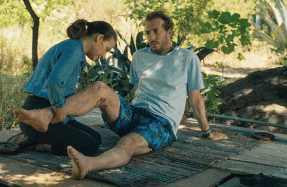Calíwood My Hometown

Just a week before his death this past September, Colombian filmmaker Luis Ospina posted his final status update on Facebook: “Este remake de Todo comenzó por el fin que estoy viviendo no se lo recomiendo a nadie. Nunca segundas partes fueron mejores.” (“This remake of It All Started at the End that I’m living, I do not recommend to anyone. Sequels are never better.”) Ospina was referring to his 208-minute documentary from 2015, in which he turned the camera on himself while he was undergoing chemotherapy to treat a life-threatening gastrointestinal stomach tumour to reminisce on his life, his career, his hometown of Santiago de Calí—which, during his lifetime, transformed from a provincial sugar-harvesting and manufacturing city into the bohemian hub of Colombia’s southwest, as well as the base of operations for the country’s second-biggest drug cartel—and his membership in the Grupo de Calí, a network of artists that congregated around the Ciudad Solar, a communally run bookstore, cinema, and art gallery founded in the late ’60s by photographer Hernando Guerrero.
Even as his works presciently introduced terms like “poverty porn” and “vampire capitalism,” which are now commonly used both in and outside of discussions of cinematic representation, as of this writing Ospina’s films have no ready means of exhibition in North America or Europe. (His first-ever complete European retrospective was held at Doclisboa, less than a year served as a belated introduction for a number of critics (including myself) to both his own oeuvre and that of the Grupo. It’s the kind of irony that Ospina may well have appreciated, given that the cinematic output of the Grupo—a small body of work, much of it still unpreserved and untranslated—had previously acquired the moniker “Calíwood,” a tongue-in-cheek label for an intentionally marginal cinema that positioned itself as a challenge to the emerging Colombian industrial cinema of its time.
You’re reading a preview, subscribe to read more.
Start your free 30 days





